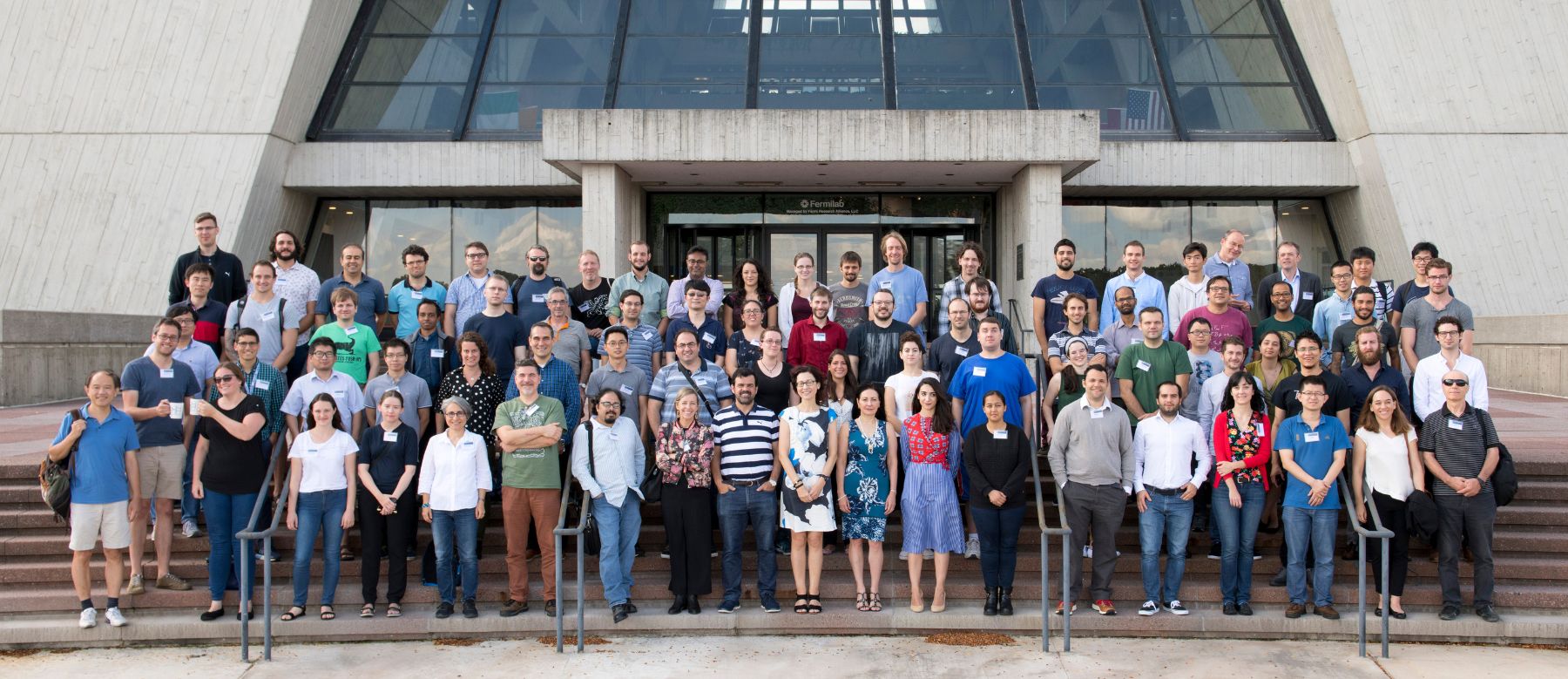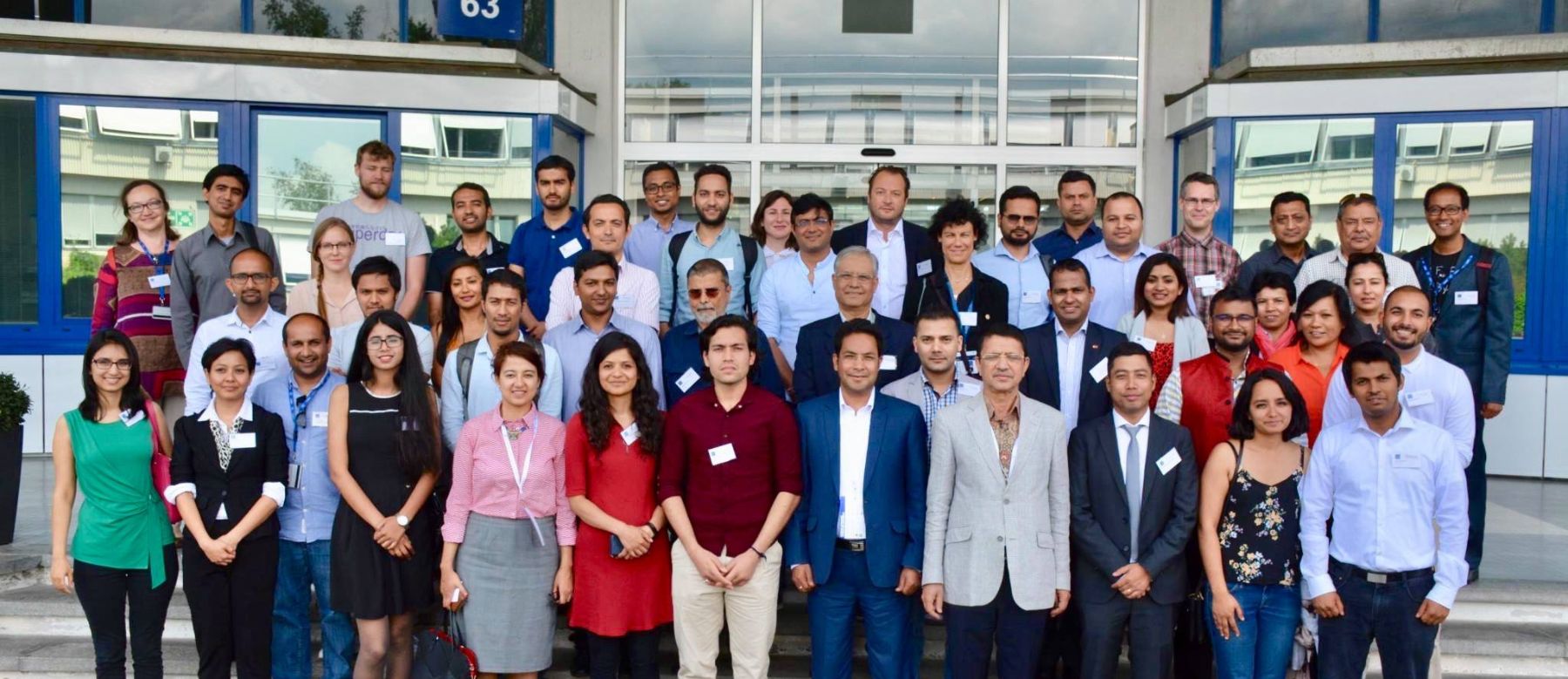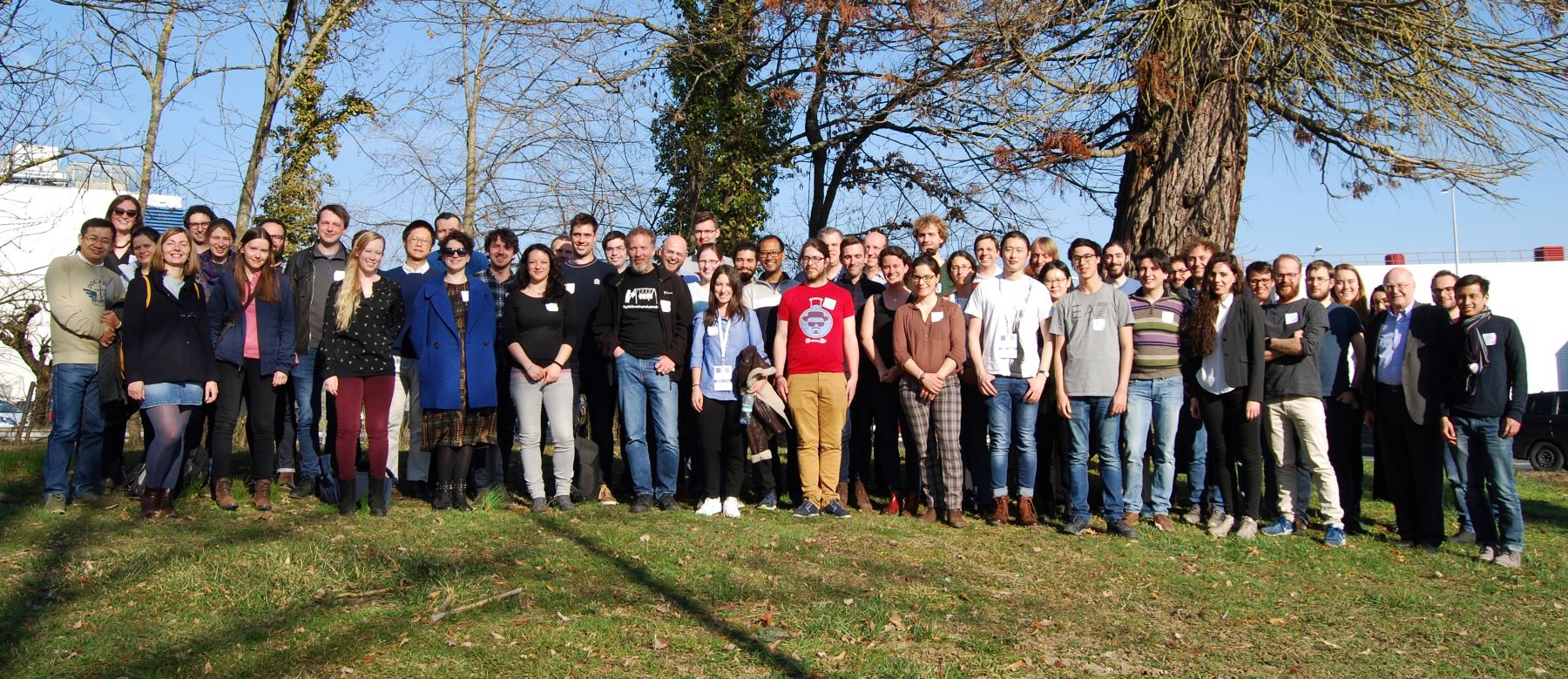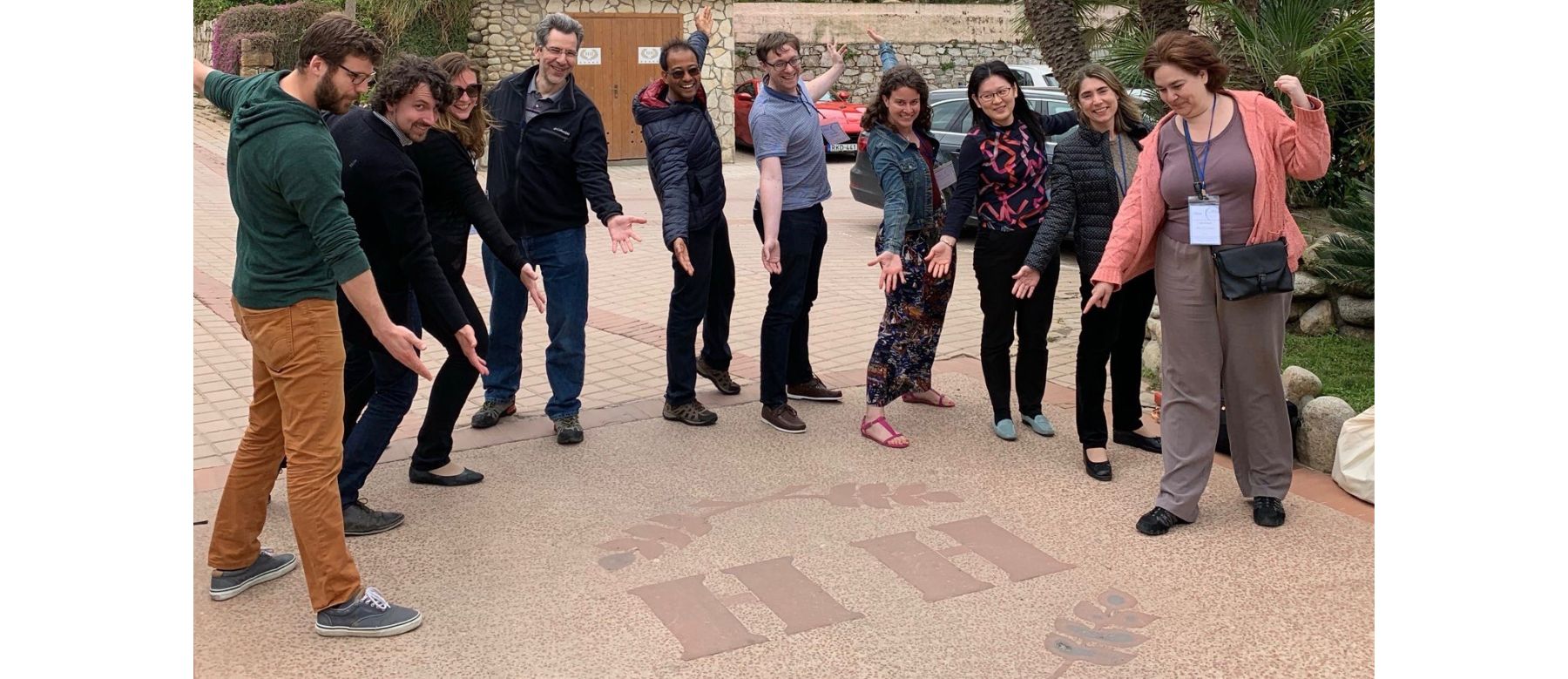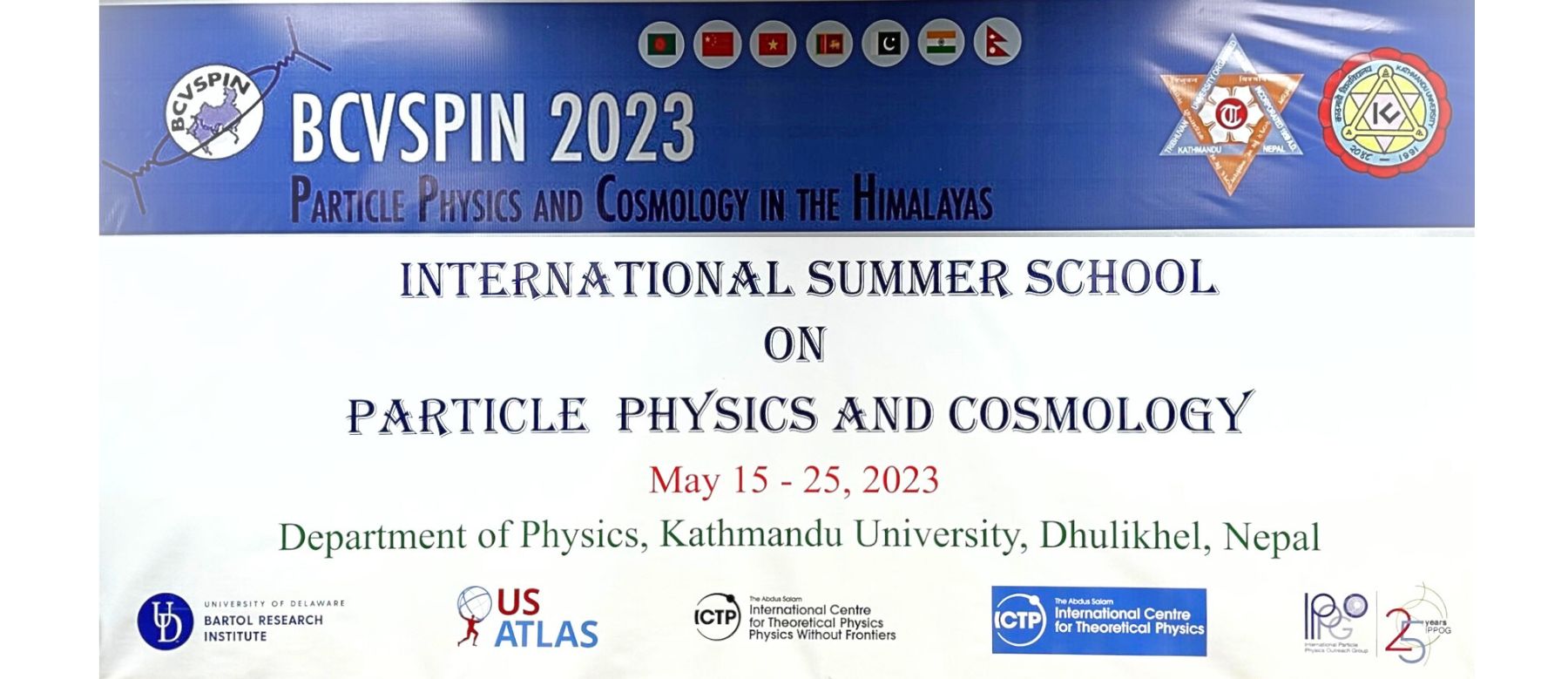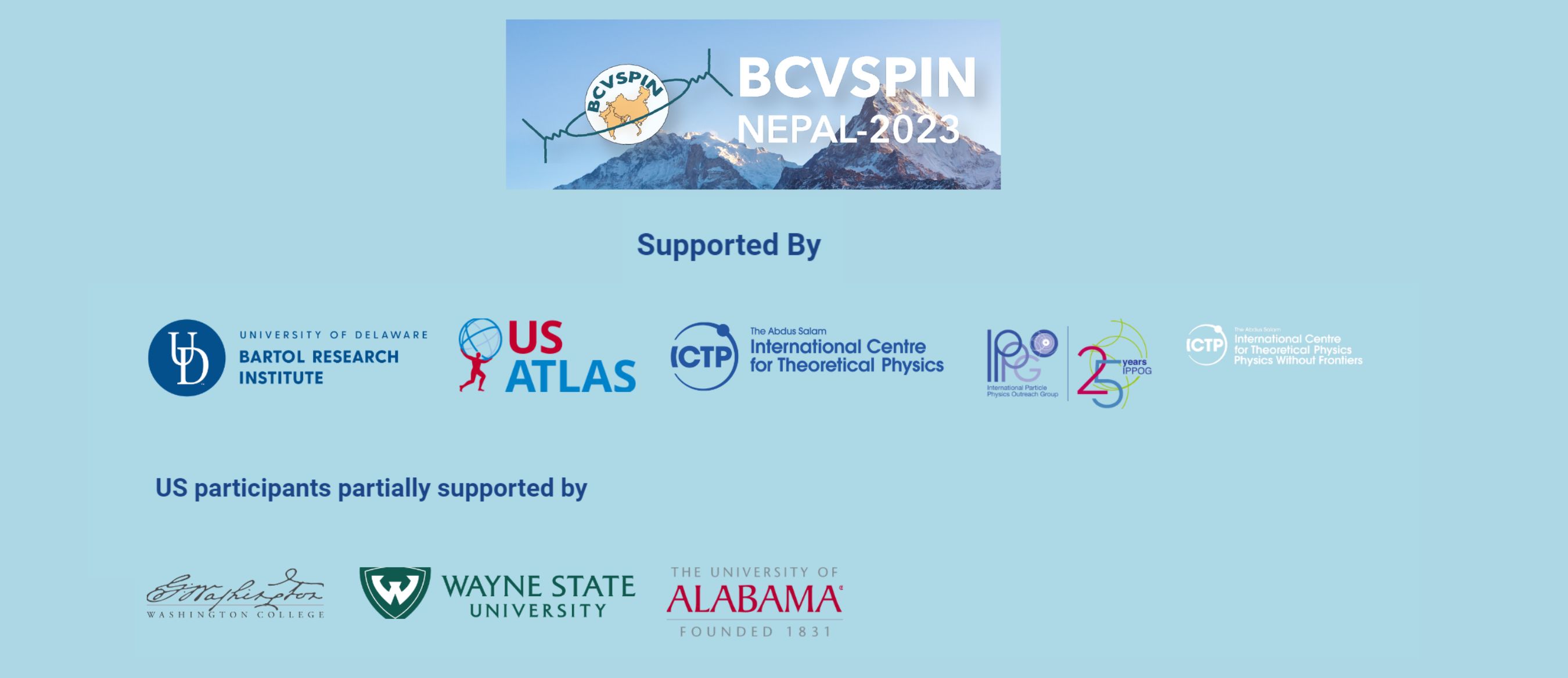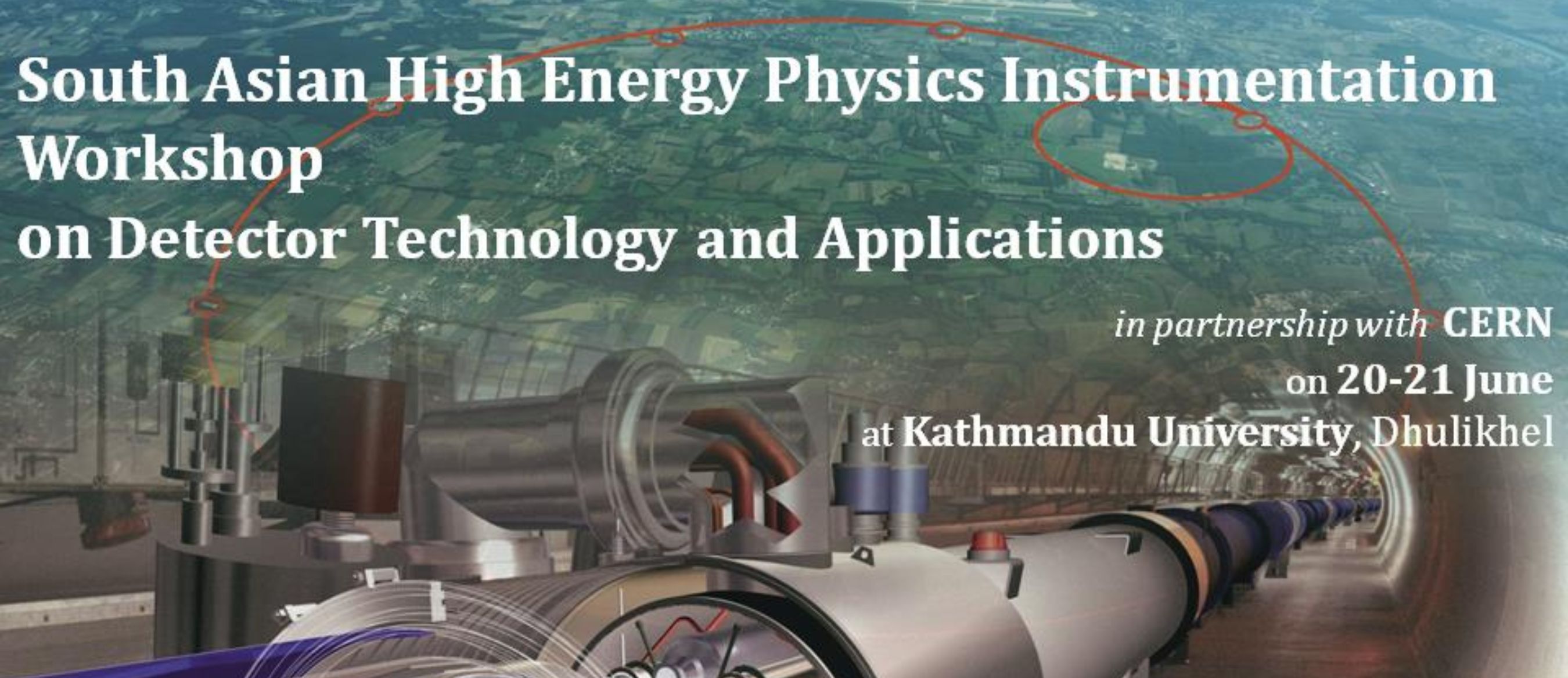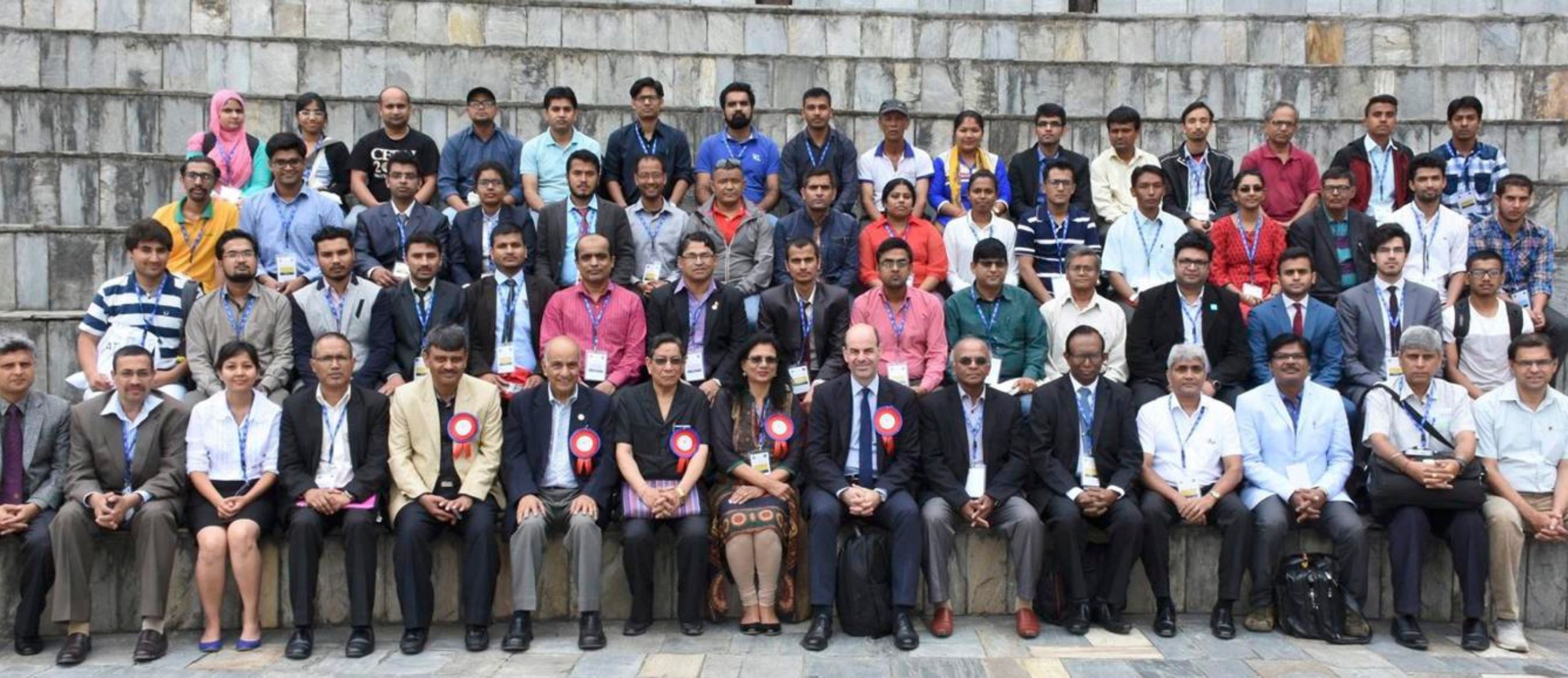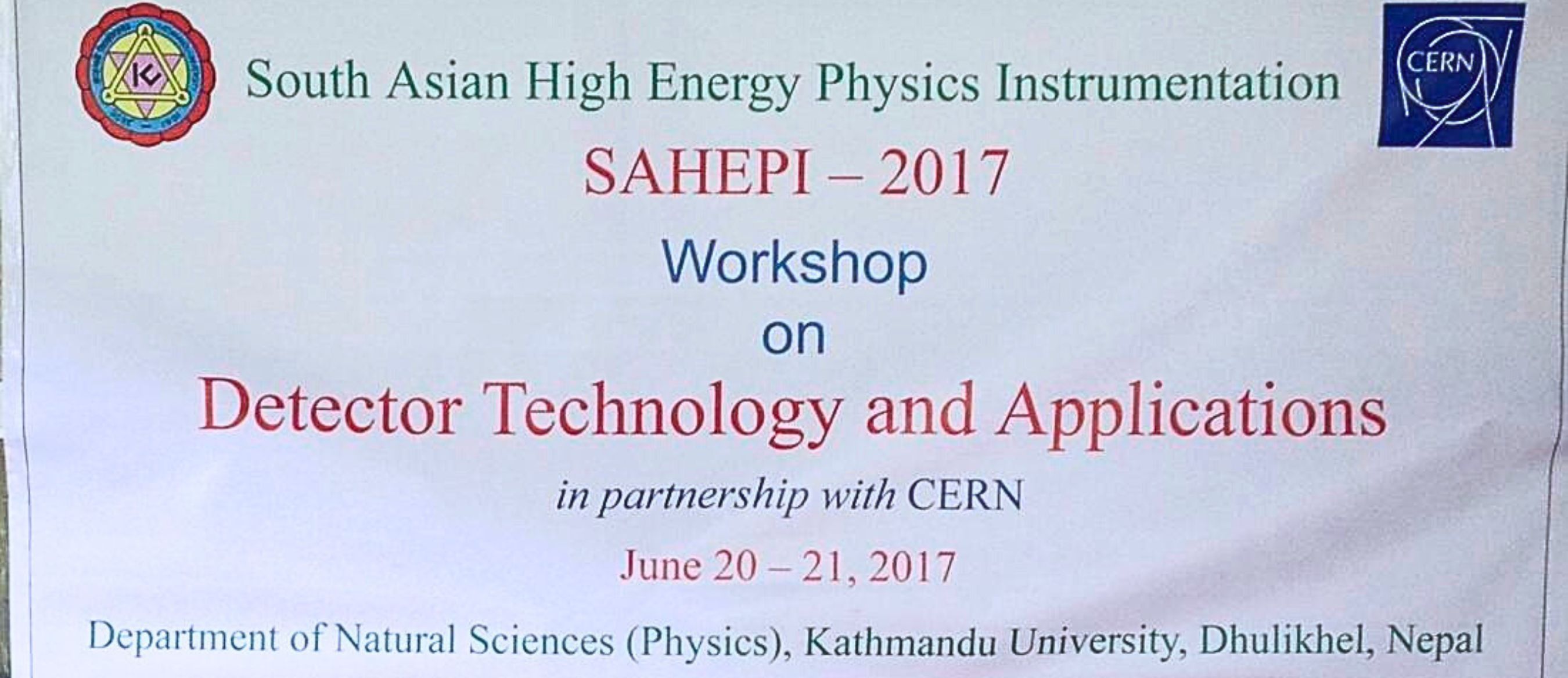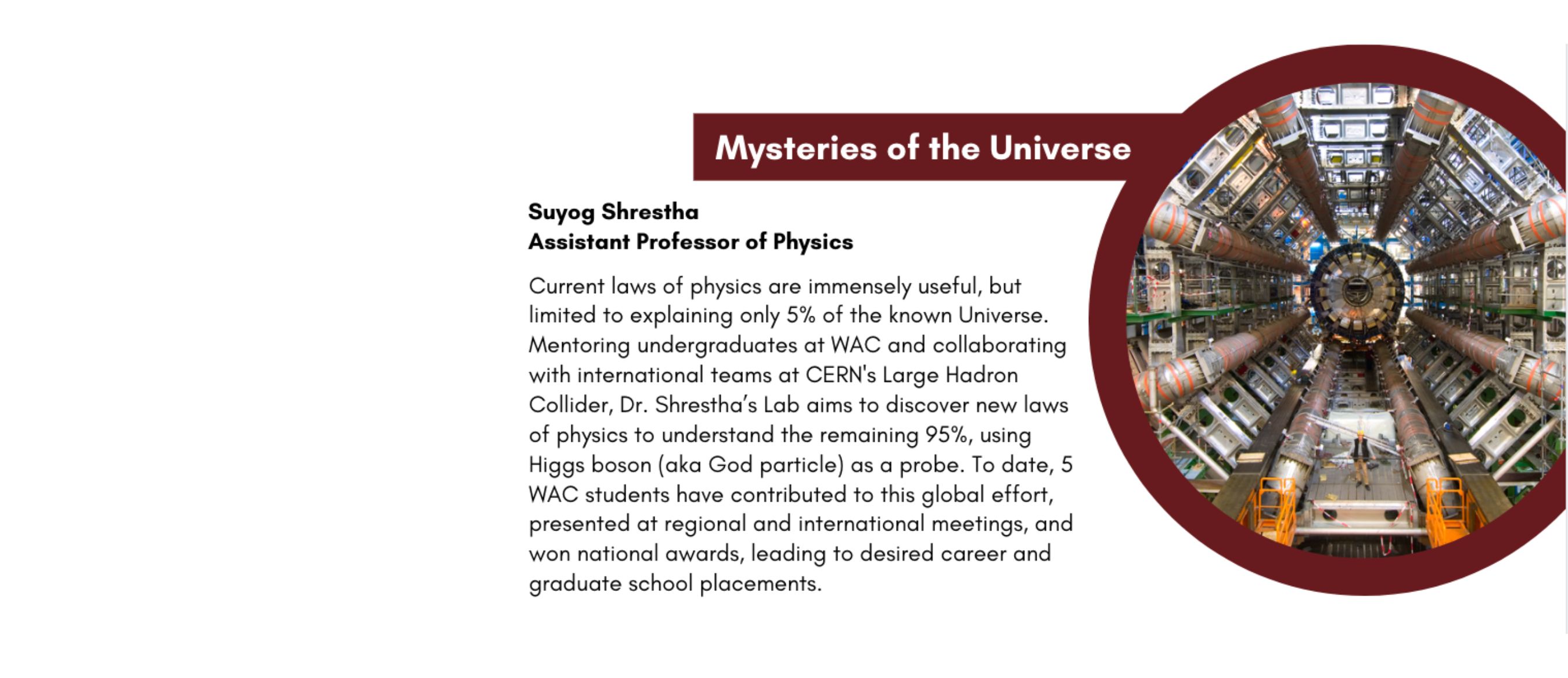Service
- Organizer: BCVPSIN Summer School 2023
Together with a team of international colleagues, I organized a two-week long summer school in particle physics and cosmology in Kathmandu in May 2023. The school,BCVSPIN, was originally conceived by Nobel laureate Abdus Salam, and aims to inspire the next generation of scientists in Asia. It brings together about 100 students from Bangladesh, China, Vietnam, Sri Lanka, Pakistan, India, and Nepal, and about 2 dozen local and international lecturers. Several successful editions of the school have been held since 1989, traditionally supported by the local institutions and International Center for Theoretical Physics (Trieste, Italy). In 2023, we have secured grants from The Bartol Institute (University of Delaware), NSF-funded US-ATLAS program, ICTP, IPPOG, and in-kind contribution from the local universities (Kathmandu University and Tribhuvan University). As part of the program, I gave a talk titled “Career in Physics,” and served on the panel for the discussion that followed.
- Panelist, US-ATLAS Education and Outreach Program, California State University, East Bay, Oct. 2022
- PI/Advisor, Cater Society Physics Outreach in India, Dec. 2022
- Advisor, Society of Physics Students 2022 - Present
- Referee, Journal of Instrumentation, 2017 - Present
- National Contact: Nepal @ CERN, 2013-2021
I worked with the Ministry of Science and the Ministry of Foreign Affairs to accomplish the signing of International Cooperation Agreement with CERN. I coordinated the actions between CERN and researchers from Nepal and contributed to the grant proposal submitted to the European Commission. I work with CERN Education and Outreach to recruit students and teachers from Nepal for training programs.
- Member: HPC Steering Committee, Kathmandu University, 2019-2021
I served on the high performance computing (HPC) steering committee, which drafted the directives and usage policy for the computing facility for university-wide use. I also coordinated between the experts at CERN and the local team to maintain and operate the HPC facility.
- Organizer: Supercomputing Workshop, Kathmandu University, 2019
I organized a high-performance computing workshop at Kathmandu University with 3 guest scientists from CERN and several local scientists. Subsequently, given the available technical expertise and resources, Kathmandu University intends to join the ATLAS collaboration as a technical institute.
- Convener: Di-Higgs Kickoff Workshop, CERN 2019
As a chair of the Di-Higgs search session, I prepared the agenda, invited the speakers, led the discussion, and prepared the summary of the session. As a result, 6 distinct analyses are underway targeting distinct topologies. Each analysis is expected to result in a paper between 2020 and 2021.
- Convener: HH Production at Colliders Workshop, Fermilab2019
As a convener of the $bbVV$ session, I prepared the agenda, invited the speakers, led the discussion, and prepared the summary of the session. Subsequently, I edited a chapter of the workshop white paper, arXiv:1910.00012
- Organizer: Swiss-Nepal Technology Transfer, CERN 2018.
- Organizer: SAHEPI Workshop 2017
I organized the first South Asian High Energy Physics Instrumentation (SAHEPI) Workshop. This was the first of a series of workshops to be held across South Asia to strengthen the region's ties with CERN. Following the workshop, I led a partnership with CERN to establish a high performance computing facility at Kathmandu University, the first of its kind in Nepal.
- Panelist: Roadmap for Sustainable Development, EPFL, Switzerland, 2017
I presented a case for the need to invest in basic science for sustainable development and the immediate need to establish a high performance computing facility in Nepal in order to digitize, collect, preserve, and analyse data on all fronts so as to inform policy-making.
- Editorial Board Member: Vector-Like Quark Search, 2016-2017
I was an editorial board member of an ATLAS analysis that searched for pair-produced vector-like quark in the ZtXfinal state, resulting in 2 conference papers and 1 peer-reviewed paper, JHEP 08 052 (2017)
